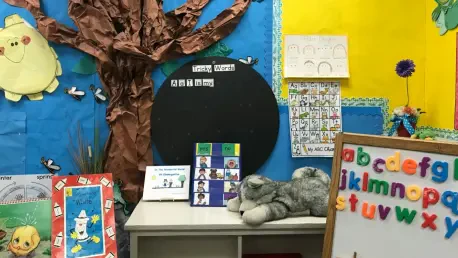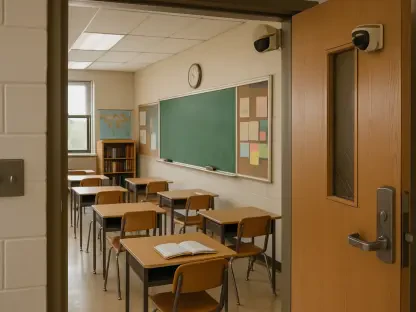In recent years, Colorado has taken bold steps to transform preschool access and quality, resulting in a groundbreaking overhaul of early childhood education. With the introduction of universal preschool, the state aims to bridge educational gaps, address socio-economic disparities, and provide a strong foundation for the youngest learners. This initiative, coupled with outstanding financial backing and diverse educational options, has elevated Colorado to a leading position nationally in preschool enrollment statistics. Despite these advances, the state faces ongoing quality challenges in maintaining high standards across all programs. This article delves into Colorado’s legislative shifts, the surge in preschool enrollment, financial impacts, and the nuances of quality within these pivotal educational programs.
Expanding Preschool Access
Universal Preschool Legislation
Colorado’s bold introduction of universal preschool is a standout action, representing a transformative law aimed at overhauling early education. The legislation now ensures every 4-year-old is eligible for up to 15 hours of state-funded preschool, significantly increasing accessibility and reaching more families across the state. This move replaces previous, smaller-scale programs, integrating a more inclusive and expansive approach to early childhood education. As a consequence, preschool enrollment has seen an unprecedented surge, propelling Colorado from 27th to third place nationally in terms of preschool attendance, closely following leaders like Washington, D.C., and Vermont. This resurgence in enrollment is a testament to the swift and far-reaching impact of the universal preschool law, an initiative that seeks to provide equitable educational opportunities regardless of a child’s background or circumstances.
Governing Vision and Leadership
Lisa Roy, Executive Director of the Colorado Department of Early Childhood (CDEC), plays an instrumental role in steering the universal preschool initiative forward, emphasizing a central mission devoted to inclusivity and foundational education. Under her leadership, the CDEC stresses the importance of granting all children an equal start, with programs crafted to transcend socio-economic and cultural barriers. This vision is echoed in the operational frameworks established statewide, designed to adapt and cater to diverse educational needs and integrate children from all walks of life into schools that emphasize quality and accessibility. Roy’s leadership approach underscores a commitment to ensuring not just access but also the potential for transformative educational experiences that could set children on successful lifelong paths.
Enhancing Early Childhood Education
Financial Commitment and Benefits
Colorado’s financial commitment to the success of universal preschool reveals itself in a substantial injection of funds exceeding $301 million, demonstrating legislative recognition of its importance. This funding translates to approximately $5,722 allocated per enrolled child, culminating in an estimated yearly savings of $6,100 for participating families—a significant relief for many households. The financial framework supporting preschool programs acts as both an educational investment and a direct economic boon for families across the state. Encouraged by Governor Jared Polis, this financial undertaking aims to dismantle barriers that typically restrict access to quality early education by alleviating the monetary stress often associated with preschool tuition.
Economic Relief for Families
The financial strategy intertwined with Colorado’s preschool programs not only facilitates educational access but also acts to ease economic pressures on families already burdened by costs of living. With state funding subsidizing a considerable portion of the expenses, families gain reprieve that enables them to allocate resources to other crucial components of daily life. The relief provided through these financial mechanisms is particularly beneficial for those facing economic hardship or housing instability, further underscoring the importance of such financial provisioning. As a result, many families experience improved accessibility to essential educational services, paving the way for their children to receive complete educational experiences during these formative years.
Addressing Quality Concerns
Evaluating Program Quality
Notwithstanding its remarkable achievements in access and enrollment, Colorado’s journey toward high-quality universal preschool is met with distinct challenges, as highlighted by NIEER’s recent findings. The state’s current universal preschool programs satisfy only two out of ten NIEER benchmarks for quality education, putting a spotlight on areas needing profound enhancement, such as teacher qualifications, manageable class sizes, and robust improvement mechanisms. Current class standards delineate a 1-to-10 staff-to-child ratio for 3-year-olds and 1-to-12 for 4-year-olds, as well as maximum class sizes of 20 and 24, respectively. These factors underscore the complexity in striking an optimal balance between access and quality, with local educational districts expressing discontent about these limitations, despite the state’s advancements in inclusivity.
D-11’s Quality Initiatives
The D-11 district within Colorado emerges as a proactive entity striving to align more closely with NIEER’s stringent quality benchmarks, aiming for substantial improvements in educational standards. By instituting tailored quality initiatives, D-11 pushes the envelope on educator qualifications, emphasizing the requisite for teaching staff to hold state teaching licenses and specialized early childhood education credentials, especially to address special needs within the classroom. The district has made notable headway by implementing strategic enhancements in class sizes and staff-to-child ratios, thus progressing on fulfilling nine of the ten NIEER quality benchmarks. This forward-thinking approach helps mitigate gaps in quality, signifying a commitment to continuous growth and excellence in early education.
Legal and Operational Challenges
Legal Disputes and Accountability
Districts across Colorado navigate a landscape riddled with legal entanglements, exemplified by the D-2 district’s lawsuit challenging the state’s operationalization of universal preschool. This lawsuit, although dismissed, brings critical issues of accountability and assurance to the forefront, signaling complexities within the state’s preschool policies. The dismissal of the case raises questions about the sustainability of quality improvements and accountability measures, accentuating the need for stronger frameworks and oversight. Legislative backing and court rulings are pivotal in shaping the trajectory ahead, influencing how such legal matters underscore necessary changes in governance and operational practices for comprehensive quality assurance and educational equity.
Operational Barriers
Navigating preschool enrollment becomes a tangled affair, often mired in inefficiencies that deter parents from successfully enrolling their children. Parents report facing a cumbersome registration process, which necessitates appreciable levels of assistance, as seen with efforts by organizations like CPCD and district authorities aiming to address these systemic barriers. This complex enrollment scenario results in frustration among parents, highlighting areas ripe for reform in improving process efficiency, transparency, and user-friendliness. Although recent legislative suggestions have sought to establish state-backed solutions, the lack of progressive outcomes points to a vital need for iterative improvements, emphasizing customer-centric approaches to resolving enrollment issues.
Future Outlook
Program Improvements and Expansions
The future holds promise for Colorado’s preschool initiatives, with strategic plans underway to expand existing offerings and accommodate varying family needs. Visions for the rollout of full-day and after-school preschool options, coupled with financial assistance programs tailored to family incomes, reflect the state’s proactive stance. This blueprint for expansion addresses specific community needs in regions like El Paso County, which recently froze its Child Care Assistance Program enrollment due to an influx of demand. By aligning strategic expansions with financial aid through scholarships and subsidies, Colorado positions itself to meet the ever-growing demands for enriched educational programs for young learners.
Influencing Educational Outcomes
Colorado’s commitment to universal preschool is underscored by a significant funding boost of over $301 million. This financial support is a clear indicator of the legislature’s acknowledgment of early education’s crucial role. On average, this investment translates to about $5,722 per child enrolled in the program. As a result, families who participate can look forward to saving an estimated $6,100 annually, a remarkable financial relief for many.
The funding framework for preschool is designed not only as an educational investment but also as a pivotal economic advantage for families throughout Colorado. Spearheaded by Governor Jared Polis, this financial initiative aims to break down barriers that traditionally stand in the way of accessing quality early education. By reducing the financial burden associated with preschool tuition, the effort is set to broaden opportunities for families, alleviating the stress and making quality education accessible to more children.
This funding strategy illustrates how the state is prioritizing early childhood education. It recognizes the long-term benefits of providing children with a strong educational foundation from a young age, thus enhancing both their academic prospects and the future economic vitality of the state. By easing financial strains, Colorado is paving the way for a more inclusive and equitable education system that serves all communities.









